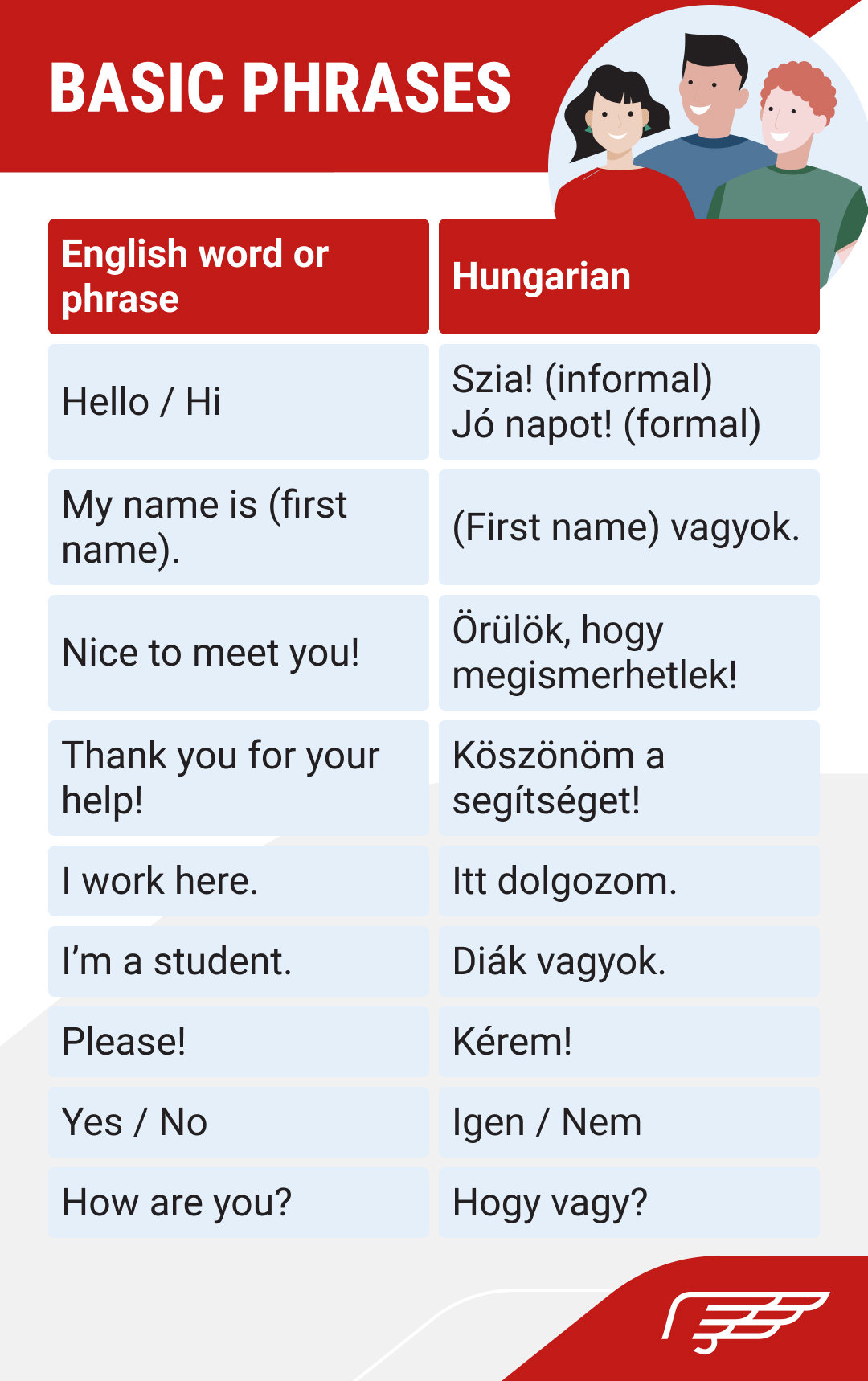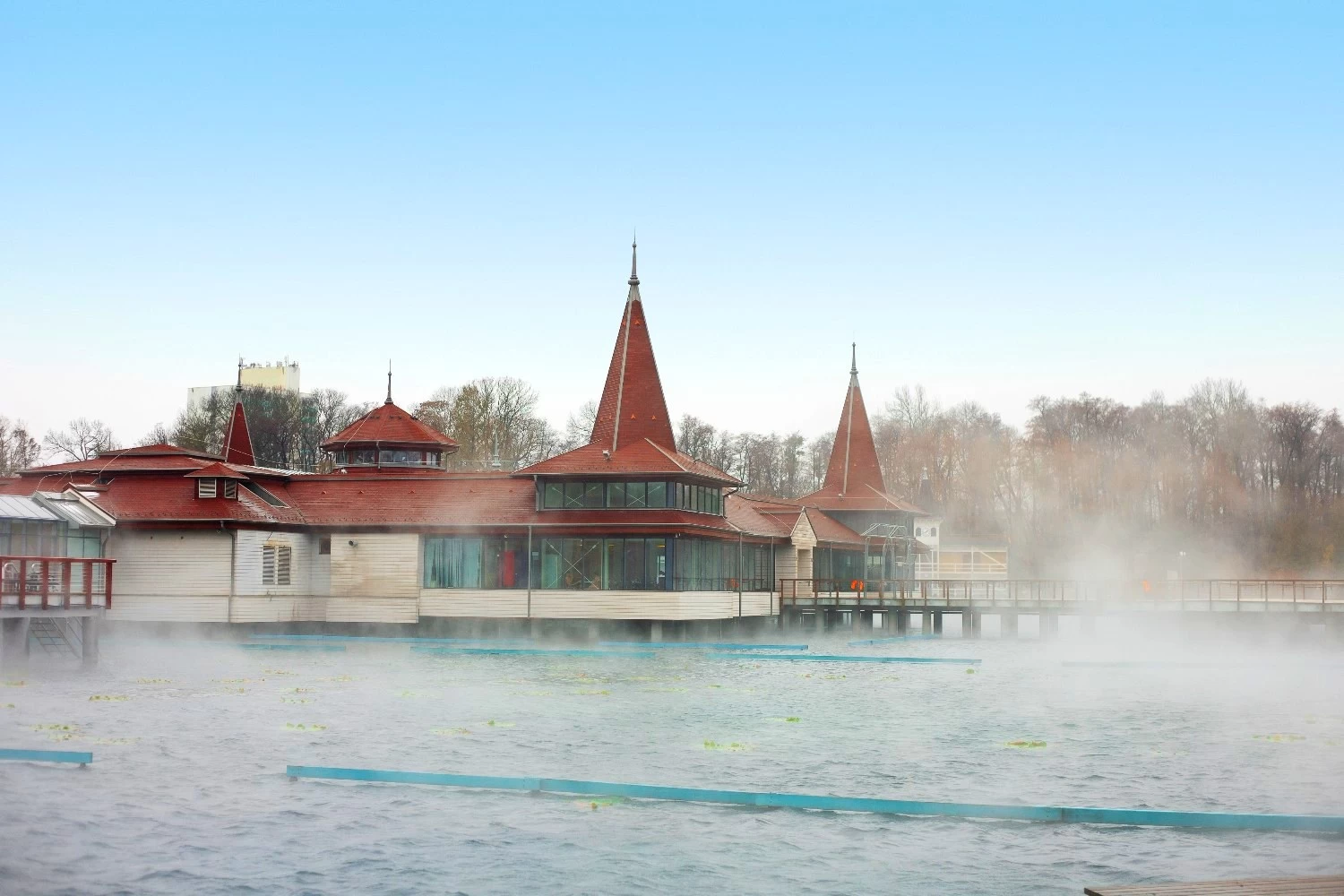Moving to Hungary: tips for Students and Professionals
Planning to immigrate to Hungary? Whether you’re moving to Hungary for a new job or to pursue your studies, living in Hungary immerses you in a vibrant European culture. As expats in Hungary, you’ll experience a rich heritage and a dynamic contemporary art scene. However, relocating comes with its own set of logistical and administrative tasks. This guide offers essential tips tailored for students in Hungary and professionals, ensuring a smooth transition as you embark on this exciting new chapter. Read on to discover our expat guide to Hungary!
Immerse yourself in Hungarian culture
Set against a backdrop of thermal springs, stunning urban architecture and mountainous national parks, Hungary offers a distinct identity just waiting to be uncovered. Living in Hungary means immersing yourself in rich history, culture and delicious culinary traditions, blending old-world charm with modern European living. And nowhere is this more true than in Budapest, the capital of Hungary, which offers a dynamic blend of tradition and innovation.
Many wonder, is Hungary a good place to live? With its vibrant opportunities and welcoming atmosphere, living in Hungary is truly a delightful experience!
Moving to Hungary: basic phrases
For expats in Hungary, navigating this new environment can be exciting yet challenging. While the official language is Hungarian (Magyar), and its unique grammar and vocabulary can be challenging to learn, you’ll find that many younger people, academics, and professionals in urban areas often speak English.
However, learning a few basic phrases will be appreciated and can make everyday interactions smoother while living in Hungary. And, if you plan to stay long-term, you might consider enrolling in a language course to gain confidence in speaking Hungarian. In the meantime, here are some common phrases to get you started:
Moving to Hungary: work etiquette
Understanding and respecting local customs, such as greeting with a firm handshake and maintaining eye contact, is important in a work environment.
Punctuality and professionalism are highly valued, but friendly interaction is also expected. Business meetings often start with small talk to build social relationships with colleagues and clients.
Outside of office hours, you’ll find active expat communities in Budapest and other major cities, providing support, networking opportunities and social activities.
Student life
Living in Hungary as an expat offers incredible opportunities for students to dive into a new culture and make lasting connections.
The top universities are known for their vibrant communities, where activities, clubs and numerous events make for a lively and inclusive atmosphere. Additionally, joining expat groups or attending language exchanges can be a good way to connect with both locals and fellow international students.
Find your ideal accommodation
The real estate market in Hungary, particularly in major cities like Budapest, can be competitive. It’s advisable to start your search early and be prepared to act quickly when you find a suitable place.
Moving to Hungary: rent prices
Cities like Budapest have a wide variety of rental properties available across many interesting neighbourhoods, ranging from a room in a houseshare to one-bedroom apartments. Popular websites like Ingatlan.com and Jofogas.hu are useful for finding these rentals. When considering accommodation, it’s important to keep costs in mind. Living in Budapest Hungary means rent prices typically range from 150,000 to 250,000 HUF per month
for a one-bedroom apartment depending on the property’s location, size and amenities. In addition, you’ll need to factor in the cost of utilities.
For students
Hungarian universities often provide dormitory accommodations for international students, offering an affordable and convenient housing option. Dorms are an excellent way to meet people and integrate into the university community. However, it’s worth noting that dorms might not always provide the same level of privacy and comfort as a private apartment.
For professionals
Long-term rentals are the most common option for business professionals, with leases typically lasting a year or more. To ease the process, it can help to enlist the help of a local real estate agent, who can navigate language barriers and manage legal requirements.
If you prefer a quieter lifestyle, suburban areas around Budapest offer more space and a peaceful environment.
These areas are still well-connected to the city by public transport, making them an attractive alternative for professionals who value a balance between work and relaxation.
Get to grips with administrative requirements
Ensure peace of mind by making sure you can legally live, study and/or work in Hungary.
Non-EU/EEA nationals need to obtain a residency permit if staying in Hungary for more than 90 days. If you plan to settle down in Hungary, you’ll need to follow specific procedures outlined by the National Directorate-General for Aliens Policing and you’ll need to present a work contract or letter of acceptance from your university, proof of accommodation, health insurance and evidence of your financial stability.
To secure a work permit, expats in Hungary need to obtain a tax number (adóazonosító jel) from the tax authority and register for a social security number (Társadalombiztosítási Azonosító Jel or TAJ). The tax number is necessary for legal employment, while the TAJ number is required to access public healthcare services.
Support your health and wellbeing
While we’re talking about healthcare, Hungary offers both public and private services.
The public healthcare system is accessible to residents through the TAJ number, which is the national health insurance card. However, EU/EEA students can use their European Health Insurance Card (EHIC) to access the service under the same conditions as Hungarian citizens.
If you’re a non-EU student, you’ll need to obtain private health insurance or – in some cases – enrol in Hungary’s public insurance system by applying for a TAJ number.
While public healthcare provides access to general practitioners, specialists and hospitals, there can be long wait times, especially in urban areas. And because English is not always widely spoken in public healthcare facilities, it might be helpful to bring a Hungarian-speaking friend or a translator with you.
Private health insurance
As a result, many expats and international students opt to take out private health insurance – especially as this can be a requirement of some student visa applications.
With the right plan in place, you can benefit from shorter wait times, access to English-speaking doctors and the knowledge that any medical costs – from routine check-ups to treatment for more serious conditions – will be covered.
Generali’s comprehensive health insurance plans, for example, provide access to private healthcare facilities, specialist consultations and emergency services. The administration process is straightforward, with multilingual support to answer your questions and assist you in the case of an emergency.
Paying for things and getting around
Hungary uses the Hungarian Forint (HUF) as its currency and while cash is still used, most places, especially in cities, accept card payments.
Popular banks include OTP Bank, K&H Bank and Erste Bank. To open a bank account, you’ll need proof of address, your passport, and a residence permit. For currency exchange, avoid vendors at airports or tourist areas, as they often offer less favourable rates. Instead, use ATMs or exchange services in the city for better rates and convenience.
Moving to Hungary: public transport
From commuting to classes or the office to communing with nature, Hungary’s efficient and well-connected public transportation system makes it easy to get around within cities and across the country. Public transport in Budapest includes buses, trams, metro lines and trolleybuses.
For regular commuters, purchasing a monthly pass (known as a bérlet) is a cost-effective option. Buying tickets for this extensive network (operated by BKK) is easy – either at stations or via mobile apps, which provide convenience and flexibility.
Other cities – such as Debrecen, Szeged and Pécs – also have reliable public transport systems, making it easy to navigate urban areas without a car. However, if you plan to drive, be aware that Hungary follows right-hand traffic and an international driving permit is required if you do not have a license from an EU country. Alternatively, with cycling becoming increasingly popular in larger cities, there are several bike-sharing services to choose from if you want a more active mode of transportation.
For intercity travel, Hungary’s well-connected railway network, operated by MÁV, links major cities and towns, providing an efficient way to travel across the country. Meanwhile, buses operated by Volánbusz are another convenient and affordable option for exploring rural areas.
If you’re seeking new academic or career opportunities in Hungary, ensure a smooth transition by familiarizing yourself with the local culture and managing administrative tasks efficiently. Additionally, securing health insurance will not only provide peace of mind but also allow you to focus on enjoying your new life without concerns about potential medical costs. Embrace the opportunity and you’ll find Hungary a welcoming and rewarding place to live.
Moving to Hungary: Frequently Asked Questions (FAQs)
Can foreigners live in Hungary?
Yes, thanks to various residence permits, such as for work, study or family reunification. EU/EEA citizens have fewer restrictions, while non-EU citizens typically need a visa and residence permit. Hungary’s affordable cost of living and vibrant culture make it an attractive destination.
How can I move to Hungary permanently?
To move to Hungary permanently, you’ll need a long-term residence permit. Non-EU citizens typically start with a work, study, or family reunification visa. After five years of continuous residence, it’s possible to apply for permanent residency. After eight years, you may be eligible for citizenship.
Is it OK to speak English in Budapest?
Yes, it is generally okay to speak English in Budapest. Many locals, especially in tourist areas, restaurants and businesses speak or understand English. Younger generations are more likely to be fluent. However, learning a few basic phrases can be helpful when relocating to Hungary.
Where do expats live in Budapest?
Expats in the capital city of Budapest tend to live in neighbourhoods like District V (Belváros) due to its central location, District VI (Terézváros) to soak up its vibrant cultural scene and District II (Rózsadomb) for a quieter, upscale residential atmosphere. District VII (Erzsébetváros) is also popular thanks to its nightlife and international community.








